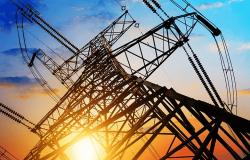
For more than a week, a wave of protests has hit some of the most prestigious universities in the United States, such as Columbia, Harvard and Yale. Protesters are against Israel’s role in the war against the terrorist group Hamas in the Gaza Strip — and ask that educational institutions cut ties with Israel and also with companies that, according to students, make the war viable.
The epicenter of this movement is Columbia University, in NY, where there is a camp of activists with Palestinian flags and messages of solidarity with Gaza.
Part of the university community has been upset by the protests: Jewish students and professors say the demonstrations have become anti-Semitic, and that they are afraid to set foot on campuses.
Shai Davidai, a professor at Columbia University’s business school in New York, said he was blocked from entering part of the campus. Davidai is an American Israeli Jew (See below what happened at universities).
The deans of several American universities called the police, and there were around 500 arrests. According to the English newspaper The Guardian, there were protests at more than 40 universities until Friday (26). The US news agency Associated Press reports arrests at 11.
In a year of presidential elections, the conflict between protesters, rectors and opponents has already become an issue for the clash between the two candidates: Donald Trump, from the Republican Party, and current president Joe Biden, from the Democratic Party.
Why is it important for elections?
Protests against war in Gaza intensify at universities, after US aid to Israel
The demonstrations are important because they take place in cutting-edge and highly visible universities, says Paulo Velasco, professor of international politics at the State University of Rio de Janeiro (Uerj) and Casa do Saber.
The issue for Joe Biden is that he depends on the votes of younger people, who are more inclined to vote for candidates further to the left. However, the current government’s foreign policy displeases this electorate, says Velasco.
This is because Biden supports Israel’s offensive in Gaza, which began after the terrorist group Hamas invaded the territory in October 2023, killing and kidnapping Israeli citizens. More than 34,000 Palestinians have died in the conflict since then, according to figures from the Ministry of Health in Hamas-controlled Gaza.
Velasco draws a parallel between young American voters and the Arab community. Both voted heavily for Biden in the 2020 election. But, this year, even if they do not support Trump, they may not appear at the polls to re-elect the current president — in the USA, voting is not mandatory. In a competitive election, this could make a difference.
Furthermore, there may be protests at important moments in the electoral race. The Democratic Party convention, when Biden’s candidacy for president will be made official, will be in August in Chicago.
Therefore, it is very difficult for Biden to respond to this wave of protests.
“The way the government reacts to these demonstrations will be a determining factor in measuring the extent of the erosion”, says Paulo Abrão, executive director of the Washington Brazil Office, a think tank based in the USA.
In a statement on Monday (22), when the protests had not yet escalated, Biden was on the fence: “I condemn the anti-Semitic protests. I also condemn those who do not understand what is happening to the Palestinians.”
Trump ‘takes a cone’
Trump, who is on trial in a New York court accused of fraud for hiding payments to a former porn star, said Biden doesn’t know what to do.
“He wants to adopt a conciliatory stance, and that often doesn’t work, it certainly isn’t working,” said the Republican candidate.
Trump returned to the topic on his social network, Truth Social. The former president stated that, in the 2020 elections, Joe Biden stated that he decided to run after a demonstration by white supremacists and right-wing extremists in the city of Charlottesville, in the state of Virginia, in 2017. Openly racist and anti-Semitic groups that supported Trump took to the streets on that occasion.
The former president said that “if this is true, then he [Biden] is doing a terrible job, because [as manifestações] from Charlottesville are minuscule compared to the anti-Israel riots happening across our country right now. And it’s the fault of Joe Biden, who hates Israel and hates the Jewish people. The problem is that he hates the Palestinians even more and doesn’t know what to do.”
Will the demonstrations grow?
The first demonstration took place at Columbia University, in New York, on April 17. The students organized the event to coincide with the dean’s testimony before the US Congress. The police were called and arrested more than 100 people. These arrests ended up strengthening further demonstrations, which spread across the country.
If the protests were concentrated in Columbia, that would be one thing, Angus Johnston, a historian focused on college activism, told the Associated Press. “If this takes the national student movement to a new place, the situation will be very different.”
The university has already spoken out, condemning any act of discrimination based on religion or nationality. The management also stated that it is in negotiations with leaders of the pro-Palestinian movement so that they can vacate the campus.
Paulo Velasco states that demonstrations in the US often start small and then end up gaining support, but he thinks that is unlikely to happen this time. “This issue does not have as much penetration as, for example, the racial issue in the USA, which is still very present. It is a subject more limited to the sphere of foreign policy.”
Furthermore, he states, the end of the school year is near (in the US, the school year begins in the second semester and ends at the end of the first semester). “This can demobilize the university environment, because during vacations American students generally leave their dorms and return to their cities, and universities are very empty,” says Velasco.
Abrão, from the Washington Brazil Office, states that in the USA, historically, demonstrations by young people are very moving, “but this also depends on solidarity and social support from public opinion.”
Protests where there were arrests
Pro-Palestinian protesters have set up a camp at this New York university since April 17.
Jewish students and teachers said they felt persecuted (like the teacher who said he was barred), and the university started offering hybrid classes (the student can choose whether to see it remotely or in person).
On April 18, the police were called to break up the camp (which did not happen) and arrested more than 100 people – this motivated students from other universities to protest.
The university wants the protesters to end the camp. According to the institution, there was an agreement in which it was agreed that people who are not students and are camping will leave the space.
Other than that, the protesters committed to banning discriminatory messages (against Israelis, for example) or threats.
University of Southern California
Due to the protests, there will be no graduation party. The university had decided to cancel the speech of the chosen speaker, who is pro-Palestinian (the institution stated that it was concerned about the risks).
Los Angeles city police arrested more than 90 people on Wednesday (24) during a protest (protesters reportedly invaded private areas).
The university closed the campus and said police would arrest anyone who did not leave.
At least 48 people were arrested, 44 of whom were students, for trespassing. They camped for days in the center of the campus.
University of Texas at Austin
Police arrested dozens of people and removed hundreds of protesters from a university field.
The university allowed some demonstrations.
George Washington University
The students also organized a camp at this university. Police officers remained around the demonstration site, but there were no arrests or serious incidents.
Peaceful demonstrations were authorized, but people who have no connection with the institution cannot protest on campus.
The university suspended a Palestinian solidarity committee.
The gates of part of the campus were closed, and access was limited to people with an institution badge.
The university also put up signs to ban tents without permission. Even so, the protesters organized a camp with 14 tents.
California State Polytechnic University Humboldt
Protesters blocked entrances to a building on Monday. Classes became remote. On Tuesday, they reported that students had occupied a second building and that three students had been detained.
The university may keep the campus closed beyond Sunday.
On Tuesday, around 80 students and people who do not study at the institution occupied an area of the campus. They were warned that the protest violated some city rules (for example, the noise was excessive and they blocked access to fire hydrants). The police were called and 108 people were arrested.
New York University
Hundreds of people camped at the university. On Wednesday, police took 133 people away, but all were released.
The students set up a camp, but the university police ordered them to disband. At least 17 people were arrested. A university spokeswoman said it was not students but people who invaded the campus.
Northwestern University
The students were organizing a camp and then the university changed the rules to prohibit tents on campus.
There were no arrests at the university.
Fashion Institute of Technology
Students set up tents and held protests where they sat on the ground. Part of the protest took place outside the school building.
Tags: ProPalestine protests spread American universities election issue Biden Trump World
--




